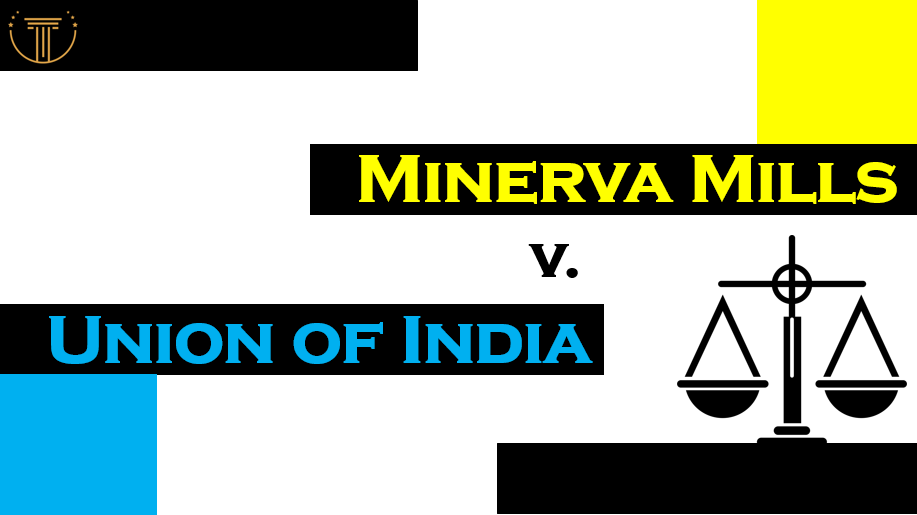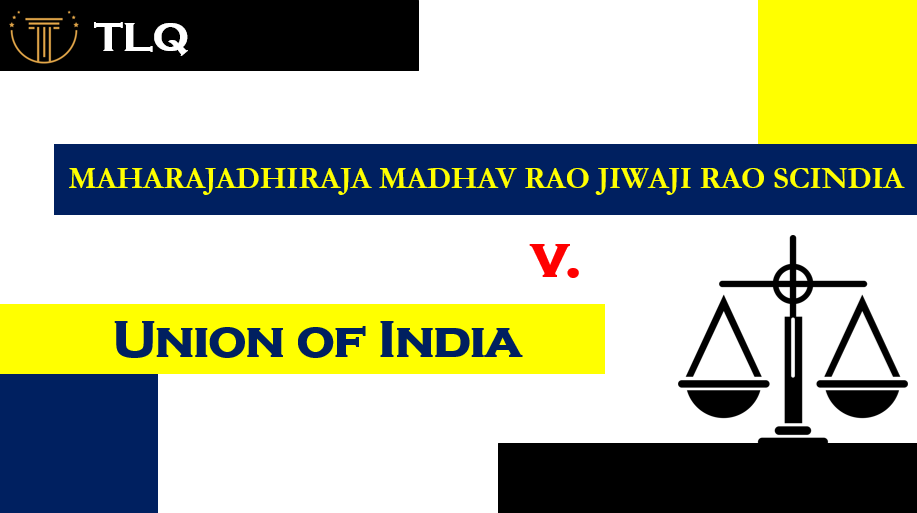Published On: 24th August, 2024
Authored By: Shahida Parween
Law College Dehradun, Uttaranchal University
Introduction
The landmark case of Lata Singh v. State of Uttar Pradesh & Another (AIR 2006 SC 2522) stands as a significant judicial pronouncement in the context of individual rights and societal norms in India. Decided by the Supreme Court of India on 7th July 2006, this case addresses the fundamental right of an adult to marry a person of their choice, irrespective of caste distinctions. The petition was brought forward by Lata Singh, a Hindu woman who married Joginder Singh, a man from a Scheduled Caste, against the vehement opposition of her family.
The case sheds light on the deep-seated prejudices and societal barriers that continue to challenge the principles of personal liberty and equality enshrined in the Indian Constitution. Lata Singh’s marriage outside her caste led to false criminal charges being filed against her husband and his family, accusing them of kidnapping and abduction. Despite Lata Singh’s assertions that she married voluntarily, the local police, influenced by her family, pursued coercive actions against her husband, highlighting the institutional biases prevalent within law enforcement.
This case commentary delves into the significant issues addressed by the Supreme Court, including the right to marry by choice, the role of law enforcement in protecting this right, and the condemnation of honor crimes. The judgment not only reaffirms the constitutional guarantees of personal liberty and freedom of choice but also underscores the need for societal change to align with these fundamental rights. By examining the facts, legal issues, and implications of the Lata Singh case, this commentary aims to provide a comprehensive understanding of its impact on the Indian legal landscape and the ongoing struggle against caste-based discrimination and honor-based violence.
Facts of the Case
Lata Singh, a resident of Uttar Pradesh, belonged to a Hindu family. She fell in love with and married Joginder Singh, who was from a Scheduled Caste. Her family did not approve of her marriage due to caste differences, leading to significant familial opposition. Lata Singh’s family, particularly her brother and other relatives, were vehemently against her marriage. In an attempt to separate the couple, her family falsely implicated Joginder Singh and his relatives in criminal cases. They accused him of kidnapping Lata Singh and made false claims that she was either abducted or missing. Under the influence of Lata Singh’s family, the local police took coercive actions against Joginder Singh and his relatives, despite Lata Singh repeatedly stating that she married of her own free will and was not abducted. The police, influenced by societal and familial pressure, continued to harass her husband and his family. Seeking protection for herself and her husband, Lata Singh approached the Supreme Court of India under Article 32 of the Constitution. She requested the quashing of the false criminal proceedings initiated by her family. The case brought to light the undue harassment faced by couples who marry against societal norms, especially inter-caste couples.
Issues before the Court
The following can be considered as the issues before the court –
- Whether an adult woman has the fundamental right to marry a person of her choice, irrespective of caste differences, and whether this right is protected under the Indian Constitution.
- Whether the false criminal charges of kidnapping and abduction filed by Lata Singh’s family against her husband and his relatives were a violation of her rights and an act of harassment?
- Whether the local police acted lawfully and impartially in handling the complaints made by Lata Singh’s family, and whether they were influenced by societal and familial pressure in taking coercive actions against her husband.
- Whether the court should take a stance against honor crimes and honor–based harassment, and what measures should be taken to protect couples who marry against societal norms, particularly in the context of inter-caste marriages?
- Whether societal customs and norms override the constitutional rights of individuals, specifically the right to personal liberty and freedom to choose one’s life partner.
Judgement of the Court
The Supreme Court unequivocally affirmed the fundamental right of an adult to marry a person of their choice. The Court emphasized that this right is protected under Article 21 of the Indian Constitution, which guarantees the right to life and personal liberty. The Court held that an adult woman has the autonomy to make her own decisions regarding her marriage and that any interference by her family or society in this regard is a violation of her constitutional rights. The Court took a stern view of the false criminal charges filed by Lata Singh’s family against her husband and his relatives. It noted that such false accusations are a form of harassment and an attempt to control the life choices of an adult woman. The Supreme Court directed the quashing of all criminal proceedings initiated against Joginder Singh and his family. The judgment highlighted the misuse of legal provisions by families to punish individuals who marry against their wishes. The judgment also critically examined the role of the local police in the case. The Court observed that the police, influenced by societal and familial pressures, acted in a coercive manner against Lata Singh’s husband and his relatives. The Court held that the police must act impartially and in accordance with the law, ensuring the protection of individuals’ rights rather than succumbing to societal biases. The Supreme Court directed the police to provide protection to Lata Singh and her husband and to ensure that no harm comes to them from her family or any other source.
The Court strongly condemned honor killings and honor-based crimes, calling them barbaric and against the principles of civilized society. It reiterated that no one has the right to interfere in the lives of two consenting adults. The judgment stated that any acts of violence or harassment against individuals exercising their right to marry by choice must be dealt with strictly. The Court directed all state authorities to take stringent measures to prevent honor crimes and to protect the lives and liberty of couples who marry outside their caste or religion. In a broader perspective, the Supreme Court addressed the conflict between constitutional rights and societal norms. The Court emphasized that constitutional rights must prevail over outdated societal customs and norms that perpetuate discrimination and restrict individual freedoms. The judgment underscored the need for societal change to align with the values of equality, liberty, and individual autonomy enshrined in the Constitution.
The following directions were also issued by the court –
- The Supreme Court directed the local police to provide adequate protection to Lata Singh and her husband to ensure their safety from any threats or acts of violence by her family or any other individuals.
- The court ordered the quashing of all false criminal proceedings initiated against Joginder Singh and his family, recognizing the charges as baseless and an act of harassment; and
- The court instructed state authorities to take proactive measures to prevent honor crimes and to protect couples who marry against societal norms. It emphasized the need for strict enforcement of laws against such crimes.
Conclusion
The present case represents a pivotal moment in the Indian judiciary’s affirmation of individual rights, particularly the right to marry a person of one’s choice. The Supreme Court’s judgment is a robust declaration that personal liberty and the right to choose one’s life partner are inviolable under the Indian Constitution. This case highlights the persistent societal and familial resistance to inter-caste marriages and the misuse of legal processes to enforce regressive social norms.
In its judgment, the Supreme Court meticulously addressed several critical issues. It firmly established that an adult woman has the fundamental right to make her own marital choices, free from familial and societal coercion. By condemning the false criminal charges levied against Joginder Singh and his family, the Court underscored the importance of safeguarding individuals from malicious legal actions intended to control their personal lives. The judgment also scrutinized the role of law enforcement, emphasizing the necessity for impartiality and adherence to the rule of law. The Court’s directive to the police to protect Lata Singh and her husband from potential harm is a significant step towards ensuring that individuals who defy societal expectations receive adequate protection from state authorities. This directive sets a precedent for law enforcement agencies to act as protectors of individual rights rather than as enforcers of societal norms.
A critical aspect of the judgment is its staunch condemnation of honor crimes. By labeling these acts as barbaric and incompatible with a civilized society, the Supreme Court sent a clear message that violence or harassment in the name of preserving family honor will not be tolerated. The directives issued to state authorities to prevent honor crimes and protect such couples reflect the judiciary’s commitment to upholding the principles of equality and personal liberty. Furthermore, the judgment calls for a broader societal change, urging for increased awareness and education to challenge deep-rooted prejudices against inter-caste and inter-religious marriages. It recognizes that while the legal framework provides protection, true change requires a shift in societal attitudes toward greater acceptance and respect for individual choices.
In conclusion, the Lata Singh v. State of Uttar Pradesh & Another judgment is a landmark decision that reinforces the primacy of constitutional rights over regressive social norms. It is a significant step towards creating a more inclusive and egalitarian society where individuals can exercise their right to choose their life partners without fear of retribution. The judgment not only protects the rights of individuals but also lays the groundwork for societal transformation, emphasizing the need for laws and attitudes to evolve in tandem to uphold the values of liberty, equality, and justice.


